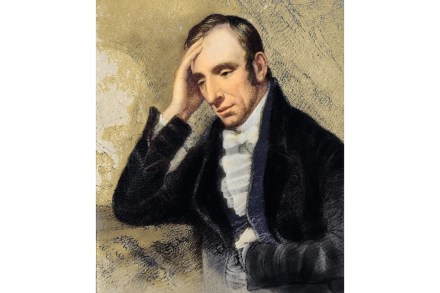Excess and incest were meat and drink to the Byrons
‘Some curse hangs over me and mine,’ wrote Lord Byron, and thanks to Emily Brand, who is a genealogist, it is now possible to see why Byron was so darned Byronic: excess, incest and marital misery flowed in the bloodstream. The gloom that looked like a Regency pose was entirely pre-programmed; George Gordon Byron’s script was handed to him at birth. Being mad, bad and dangerous to know was as instinctive to the Byrons as howling at the moon for a pack of wolves. When he compared his family to ‘whole woods of withered pines’, the poet was not exaggerating. Every branch was rotten. The son of a sociopath known



